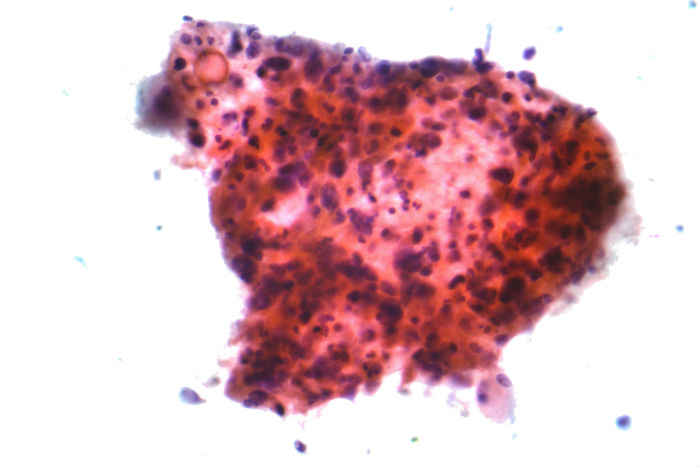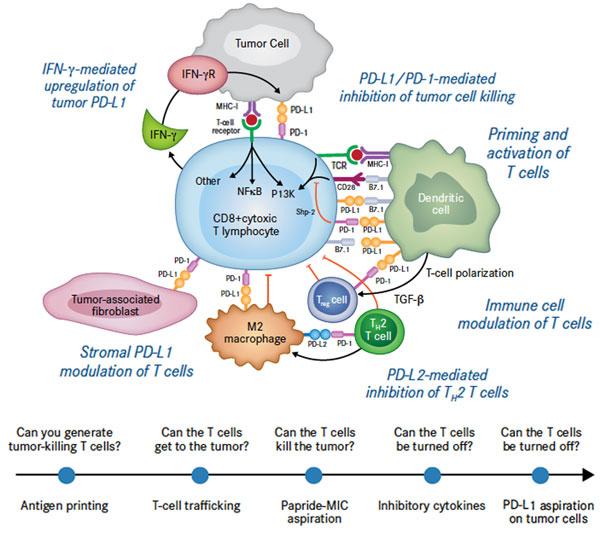Click here for the next article in the series.
Patients Living Longer
Recent dramatic advances in the development of biologic agents and improved surgical techniques for the treatment of lung cancer (Figure 1) are creating a cohort of patients who are long-term survivors. Survival is extended when the disease is detected early, but for many patients even advanced lung cancer has become a chronic disease.
Early detection with routine low-dose CT screening in at-risk patients, along with improved surgical, pharmacologic, and radiation therapies have improved the outlook for NSCLC patients. Some of these patients experience recurrences but the newer biologic agents are often as effective as second-round therapies as they are in the first round.
Currently, the CDC reports that lung cancer incidence has decreased to a statistically significant extent from 2005 to 2009 among men in all U.S. Census regions and 23 states, and among women in the South and West U.S. Census regions and seven states. The decrease in mortality since 1990 is still more significant.
"Because of improvements in early detection and treatment of cancer, the proportion of persons with cancer who survive ≥5 years after diagnosis has increased," the CDC website explains. "The proportion of persons with cancer who survived ≥5 years after diagnosis was 65% and was similar among males (65%) and females (65%) but lower among black persons (60%) compared with white persons (65%)."
The CDC report on the period 1990 to 2000 notes that "lung and bronchus cancer mortality declined by 1.7%/year among men and increased by 1.0%/year among women (rate was 90.6 in 1990 and 76.9 in 2000 for men; rate was 36.8 in 1990 and 41.2 in 2000 for women). These changes were statistically significant. In 2000, lung and bronchus cancer death rates among men were approximately 1.9 times higher compared with those among women (76.9 versus 41.2)."
Between 1990 and 2014 the CDC changed the way it described lung cancer survival. In the old days it was a "mortality rate." Today it is a "survival rate." Oncologists can expect to see about 65% of lung cancer patients live for 5 years or longer.

Reason for Optimism
This collection of advances in detection and treatment give clinicians reason to be optimistic that some of these patients will live much longer “I think we are going to see dramatic changes in the number of people who are going to be long-term survivors of lung cancer,” Nathan Pennell, MD, PhD told MDalert.com. “Patients can expect much more individualized and personalized therapy. I think we are getting much closer to turning lung cancer into a chronic disease.”
Dr. Pennell is Staff Physician in Oncology Associate Professor of Medicine at the Taussig Cancer Institute of Cleveland Clinic and an Associate Professor of Medicine in the Cleveland Clinic Lerner College of Medicine at Case Western Reserve University.
Lung cancer can still be a bleak diagnosis when the disease is caught late, but recent treatment advances, such as immunotherapy (Figure 2) -- in addition to early detection strategies, such as routine CT in high-risk patients -- have made for a much more positive prognosis. As a result, many more people are now living long-term with lung cancer.

(Image courtesy of the American Association for Cancer Research.)
“Although [some] cancers may never be curable, they can often be controlled for long periods by a succession of treatments. When one therapeutic approach no longer works, another one that has come along in the meantime might stop the disease from progressing …” according to an article in The New York Times.
“Lung cancer is no longer a lethal disease with few effective treatment options,” explained James Stevenson, MD, in an interview with MDalert.com. Dr. Stevenson is Staff Physician in Oncology in the Taussig Cancer Institute of Cleveland Clinic.
Dr. Stevenson noted that his colleagues – and his patients -- are having a hard time letting go of the notion that lung cancer is almost invariably fatal and that lung cancer patients have few treatment options.
In fact, there is significant reason for hope among lung cancer patients.
